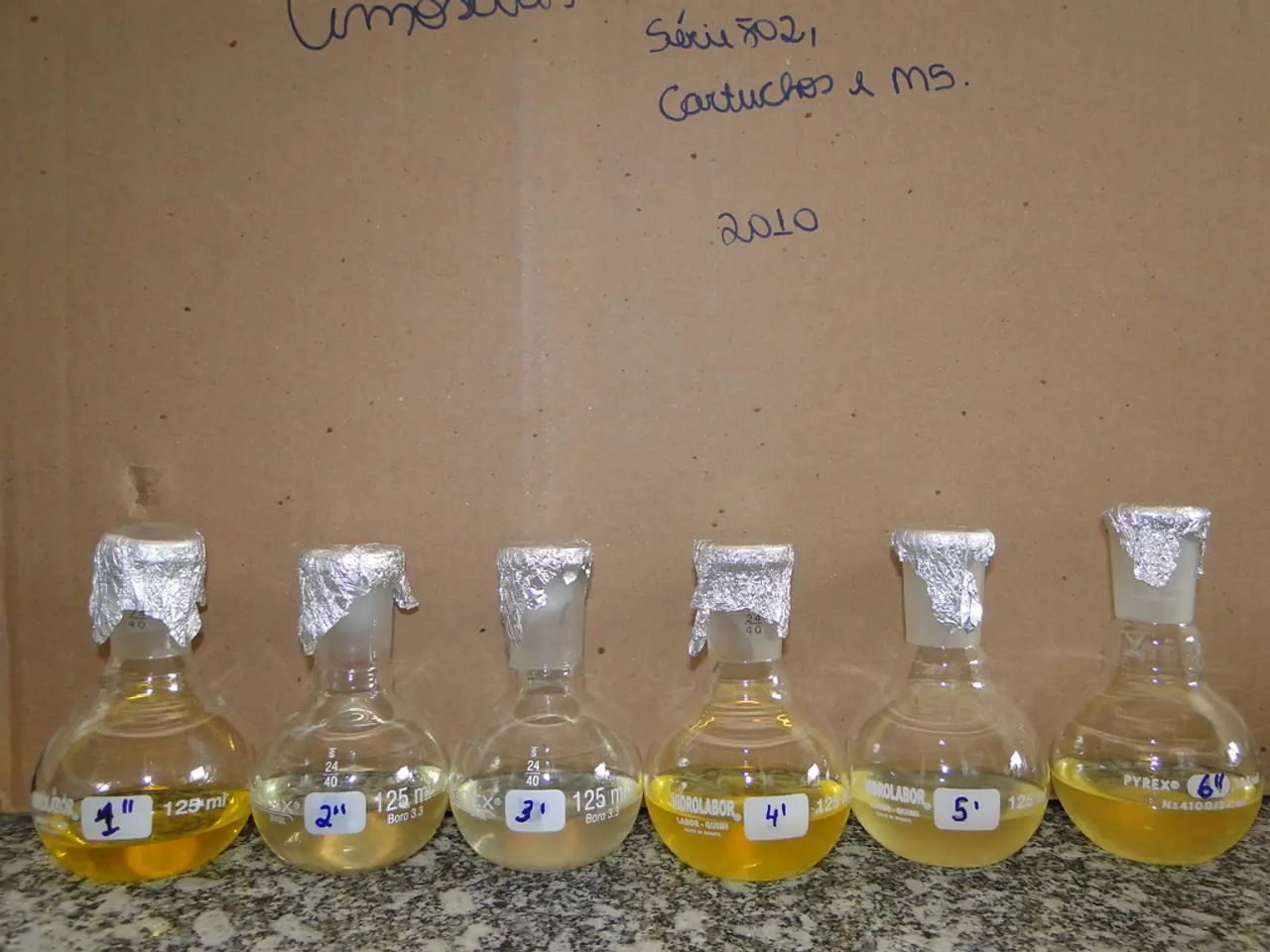Chemotherapy regimen for FLOT treatment
The FLOT chemotherapy regimen, a four-drug combination, is commonly used to treat stomach and esophageal cancers. The drugs in the FLOT treatment are Fluorouracil (5-FU), Leucovorin, Oxaliplatin, and Docetaxel. This treatment is administered intravenously in a hospital setting.
The FLOT treatment cycle consists of eight cycles, each lasting 14 days. The first four cycles are given before surgery, and the next four cycles are administered after surgery.
5-Fluorouracil (5-FU) is an antimetabolite drug that kills cancer cells by acting as false building blocks in the cell's genes. Common side effects of 5-FU include nausea, vomiting, diarrhea, mouth sores, low blood cell counts, and hand-foot syndrome (redness and pain on palms and soles). Rarer side effects may include rashes and hives.
Leucovorin is not a chemotherapy drug but an active metabolite of folic acid that improves 5-FU's effectiveness. While it generally has mild side effects, it may increase some of 5-FU's toxicities.
Oxaliplatin interferes with the development of DNA in a cell, preventing it from dividing into new cells. Common toxicities include peripheral neuropathy (tingling or numbness in hands and feet), nausea, vomiting, diarrhea, allergic reactions, and lowered blood counts. Hypersensitivity reactions and cold-induced neuropathy are also possible side effects.
Docetaxel contains chemicals that kill rapidly dividing cells, such as cancer cells. Side effects include neutropenia (low neutrophil count increasing infection risk), fluid retention/edema, neuropathy, hair loss, nausea, vomiting, and fatigue.
The overall FLOT regimen is considered moderately to highly toxic, with risks of severe (grade 3 or higher) adverse events in a significant minority of patients, including infection due to neutropenia and gastrointestinal toxicities. However, a 2019 analysis and a study suggest that using FLOT chemotherapy can help to improve overall survival. A 2021 retrospective analysis notes that overall survival was higher for individuals who completed their FLOT regimen to treat cancer.
Close monitoring and supportive care during treatment are essential to manage these risks effectively. Common side effects that patients may experience include breathlessness, shivers, high temperature, numbness of the fingers and toes, and diarrhea.
In summary, while FLOT chemotherapy can have significant side effects, it may be an effective treatment option for stomach and esophageal cancers. Patients should discuss the risks and benefits of this treatment with their healthcare provider.
In the context of FLOT chemotherapy, which is used in the treatment of stomach and esophageal cancers, this regimen potentially causes severe side effects such as anthrax-like symptoms (peripheral neuropathy, resulting in tingling or numbness in hands and feet) and other medical conditions like nausea, vomiting, diarrhea, and low blood cell counts. Despite these health-and-wellness risks, studies suggest that FLOT may improve overall survival. Therefore, careful consideration and close monitoring by healthcare providers are crucial when discussing the risks and benefits of this treatment.




